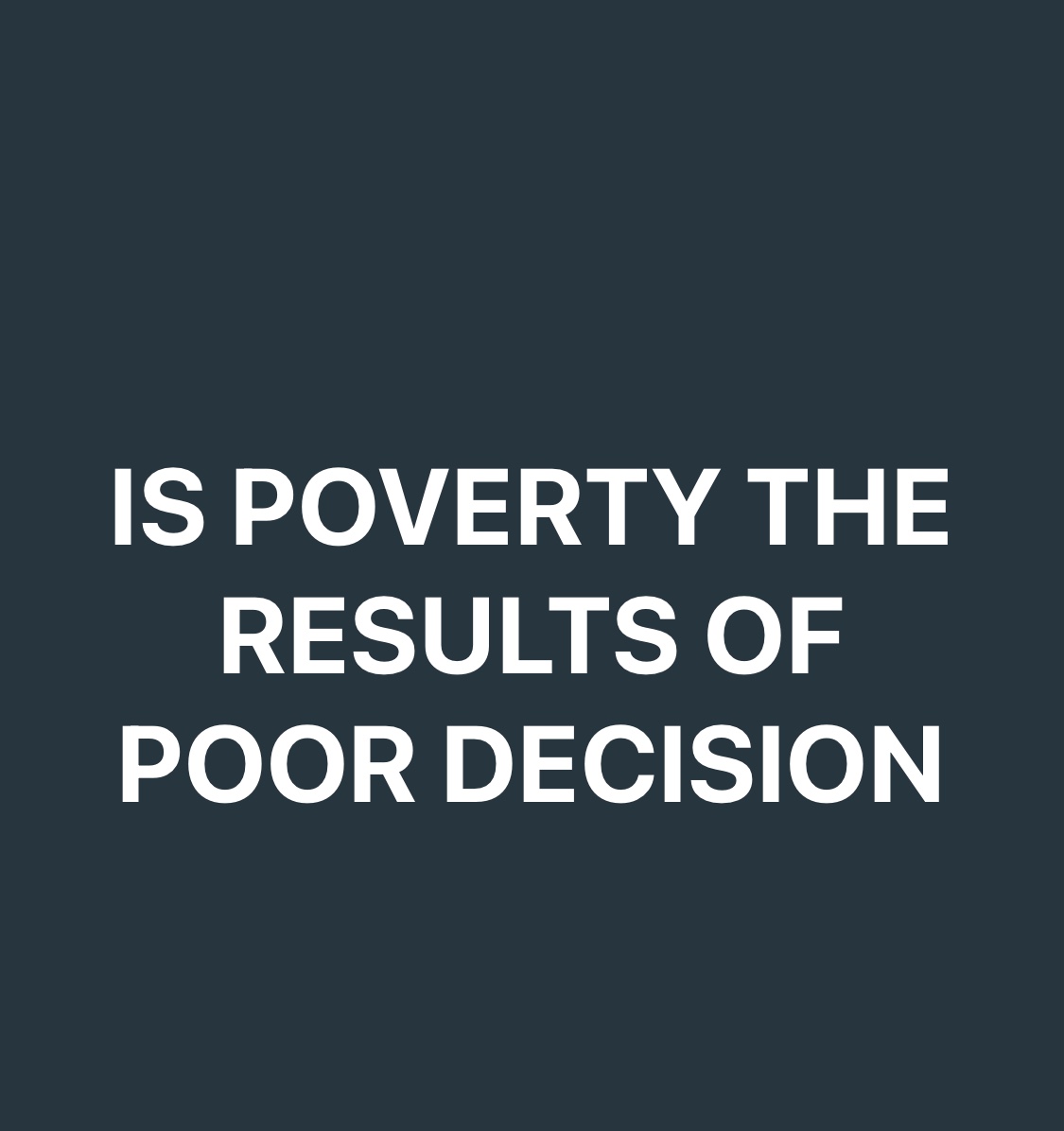No one truly despises beggars,What they really fear is being reminded that life is unpredictable and that they, too, could have easily found themselves in a similar situation.
When you genuinely look at a beggar, you'll understand why people turn away,It's not revulsion it's fear,A quiet, gnawing fear that unsettles the soul, Beggars are living proof that hard work and determination don't always guarantee success, that life isn't always fair.
Nigerians, in particular, dislike being reminded of this reality,The country has a culture where people proudly wear their struggles as a badge of honor, obsessing over their own hard work and ignoring the role of luck in their success.

The neighborhood you grew up in, your parents, your education, and the opportunities you received were all beyond your control, Yet, many Nigerians attribute their success solely to their own efforts, refusing to acknowledge the impact of chance.
Try telling this to someone who has made it, and watch their reaction. They'll claim they worked hard for everything, that God favored them, and that they sacrificed sleep and comfort to achieve their goals. They'll scorn beggars, lecture them about laziness, and refuse to help ,not because they're stingy, but because acknowledging the beggar's struggles would force them to confront their own vulnerability.
They pretend that poverty is always the result of poor decisions, that every beggar must have made mistakes, and that every struggling person must have been careless. But if they accepted the truth – that the line between them and the beggar is thin, and that a single misfortune could erase everything they've built – they would have to confront an unbearable reality.
That reality is that, in another life, they could have been the ones standing by the roadside, begging for help, and watching as people looked away, pretending not to see them
That's why Nigerians often react with hostility towards beggars. They see them as a threat, a reminder that their own success is not entirely due to their own efforts. They fear that if they acknowledge the beggar's humanity, they will have to confront the randomness of life.
But this fear is misplaced. Acknowledging the humanity of beggars doesn't mean that we are acknowledging our own failure. Rather, it means that we are recognizing the inherent dignity and worth of every human being, regardless of their circumstances.
It's time for Nigerians to re-examine their attitudes towards beggars. Instead of viewing them with hostility and suspicion, we should see them as fellow human beings who deserve our compassion and empathy.
We should recognize that begging is not a moral failing, but rather a symptom of a broader societal problem. We should be working to address the root causes of poverty and inequality, rather than stigmatizing those who are struggling.
By doing so, we can create a more just and compassionate society, one that values the dignity and worth of every human being. We can start by treating beggars with kindness and respect, rather than fear and hostility.
So the next time you see a beggar on the street, don't look away. Instead, look them in the eye and see the humanity that is staring back at you. Offer them a kind word, a smile, or a helping hand. It may not change their circumstances, but it can change yours.
It can remind you that we are all connected, that we are all human beings deserving of dignity and respect. And it can inspire you to work towards creating a world that is more just, more compassionate, and more equitable for all